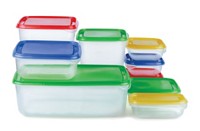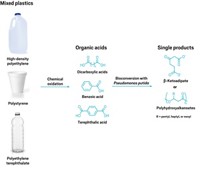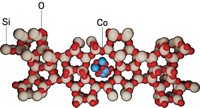Advertisement
Grab your lab coat. Let's get started
Welcome!
Welcome!
Create an account below to get 6 C&EN articles per month, receive newsletters and more - all free.
It seems this is your first time logging in online. Please enter the following information to continue.
As an ACS member you automatically get access to this site. All we need is few more details to create your reading experience.
Not you? Sign in with a different account.
Not you? Sign in with a different account.
ERROR 1
ERROR 1
ERROR 2
ERROR 2
ERROR 2
ERROR 2
ERROR 2
Password and Confirm password must match.
If you have an ACS member number, please enter it here so we can link this account to your membership. (optional)
ERROR 2
ACS values your privacy. By submitting your information, you are gaining access to C&EN and subscribing to our weekly newsletter. We use the information you provide to make your reading experience better, and we will never sell your data to third party members.
ACS Meeting News
Turning plastic garbage into valuable lube oil
Catalyst converts polypropylene bags and bottles to hydrocarbon lubricants
by Mitch Jacoby
August 26, 2021

Bottles, bags, and other types of plastic garbage are accumulating rapidly in landfills, oceans, and the atmosphere. Meanwhile, the world’s dependence on plastic packaging is increasing. Converting plastic waste to useful products could help mitigate the problem. Until now, however, little progress has been made converting one of the most widely manufactured polymers—polypropylene.
Chemists may have just come up with a solution, according to research presented on Wednesday at ACS Fall 2021, a meeting of the American Chemical Society. Speaking at a session in the Division of Catalysis Science and Technology, Pavel A. Kots reported that in the presence of a ruthenium catalyst, polypropylene can be converted in high yield to valuable lubricant oils for automobile engines.
Kots is a postdoctoral researcher who works with the University of Delaware’s Dionisios G. Vlachos. He described tests in which he and his coworkers used transition metals and support materials to prepare several catalysts, then compared their ability to decompose various types of polypropylene. They found that catalysts consisting of ruthenium nanoparticles supported on titanium dioxide worked well.
Specifically, the team showed that under mild hydrogenolysis conditions, the ruthenium catalyst readily depolymerized polypropylene samples, converting them to hydrocarbon oils in high yields—up to 80%. The catalyst worked well on various types of polypropylene, including samples with a range of molecular weights, and commercial polypropylene bottles and bags. The team used isotope labeling and other techniques to probe the mechanism. They found that polymer breakdown occurs through successive hydrogenolysis steps that gradually break large molecular chains into smaller products (ACS Catal. 2021, DOI: 10.1021/acscatal.1c00874).
“Polypropylene is a big part of the plastics waste problem,” said James D. Burrington, a catalysis and lubrication specialist who has spent more than 40 years in industry. This discovery along with the elucidation of the mechanism should interest the catalysis community and those engaged in furthering sustainable technologies for plastics recycling, he said.
Scott H. Wasserman, an R&D director at Dow, described the study as “significant in both academic and applied terms.” Plastics recycling has often been limited to mechanical processes in which post-consumer plastics are collected, processed mechanically, and reintroduced into a plastics manufacturing stream, Wasserman explained.
“Chemical recycling requires new and novel catalytic discoveries to facilitate breakdown of long polymer molecules into smaller ones,” Wasserman said. This work represents a significant development in that type of recycling, he noted. He added that the mild depolymerization conditions make this method attractive industrially as a low-energy, cost-efficient recycling process.
Raymond J. Gorte, a catalysis specialist at the University of Pennsylvania, is impressed with the method’s chemical selectivity. “It’s truly remarkable,” he said, that the technique produces primarily the larger, liquid hydrocarbons that make up lube oils, without producing significant amounts of light alkanes, which are much less valuable. He added, “this work sets a very high standard for future research in this important topic.”





Join the conversation
Contact the reporter
Submit a Letter to the Editor for publication
Engage with us on Twitter